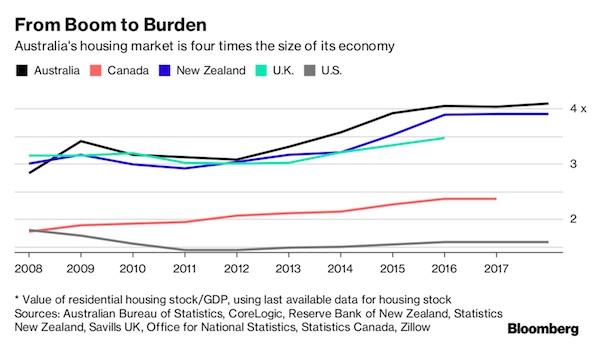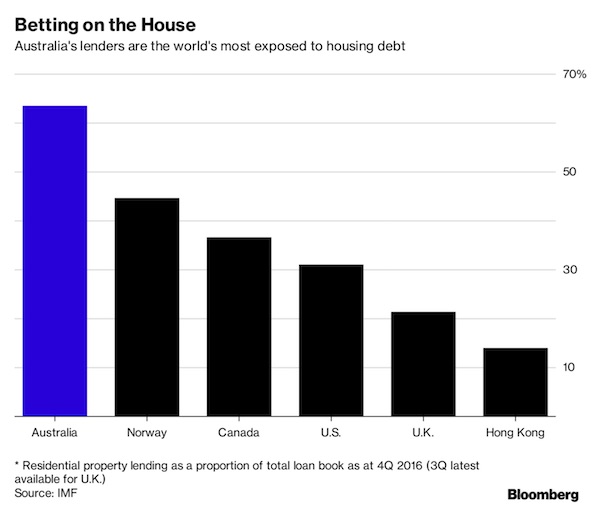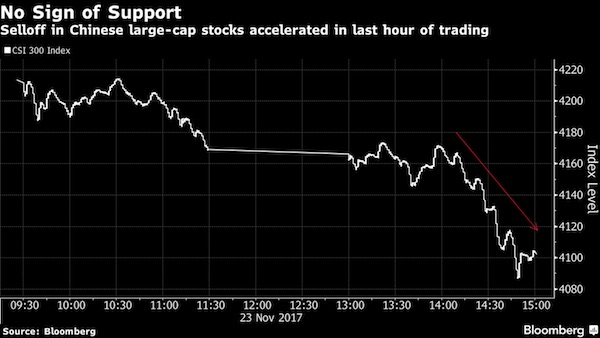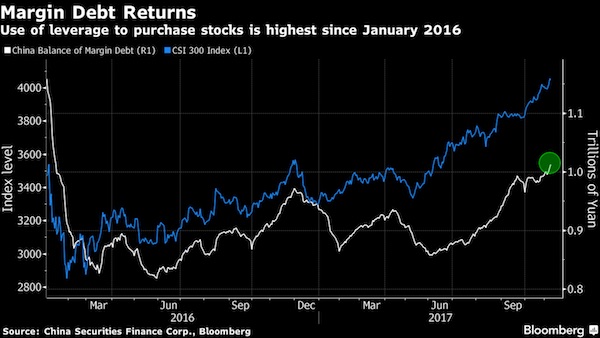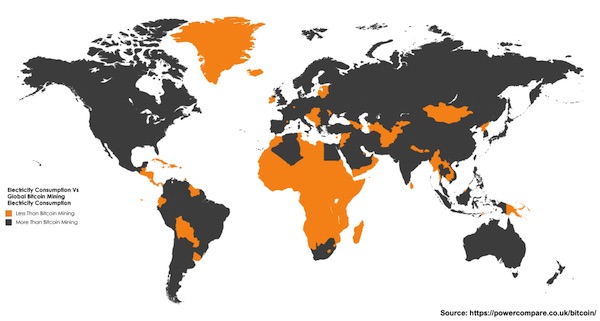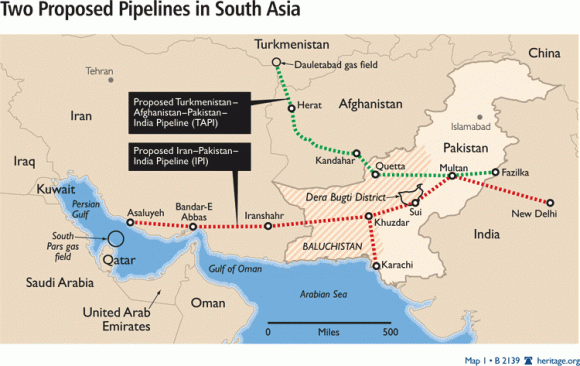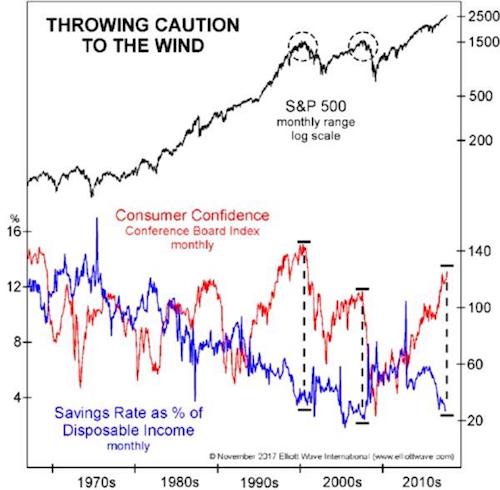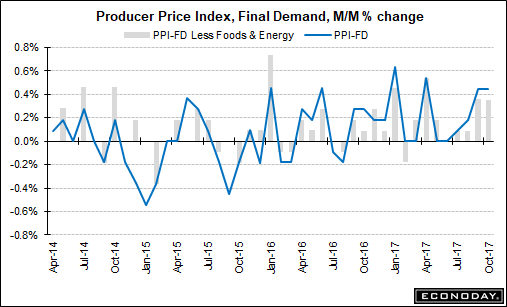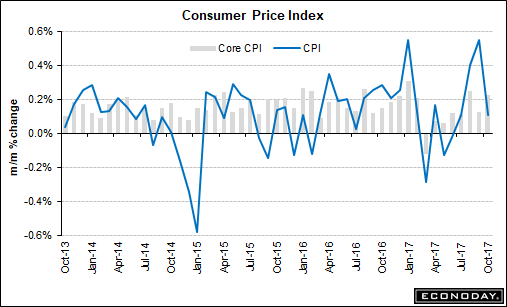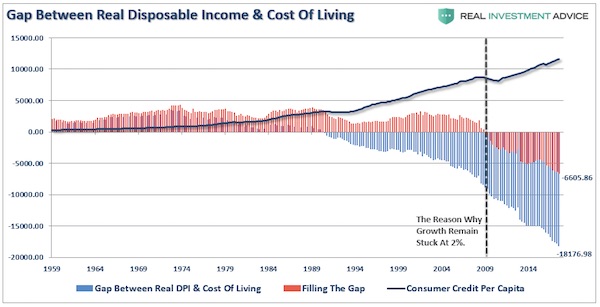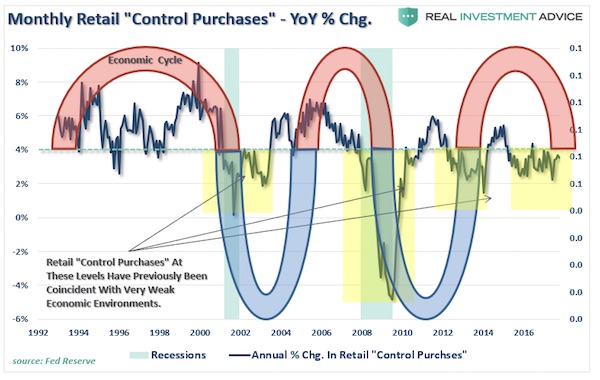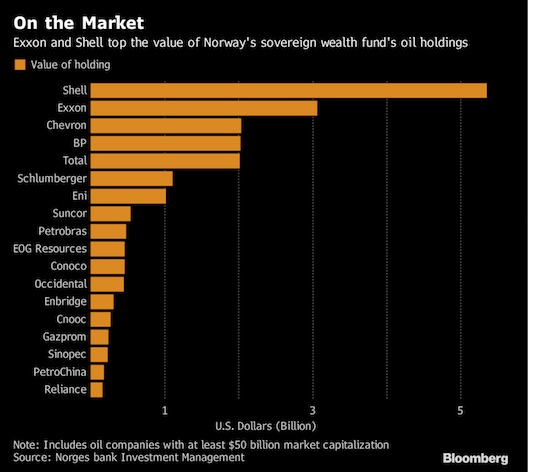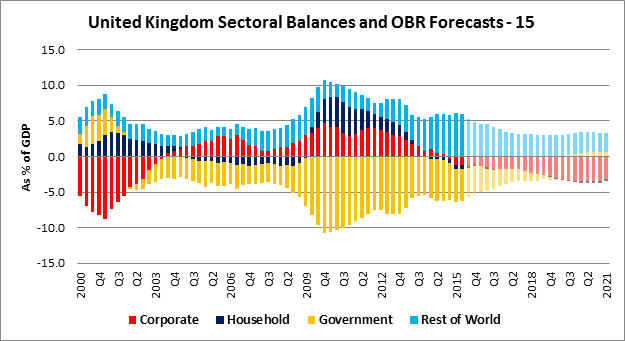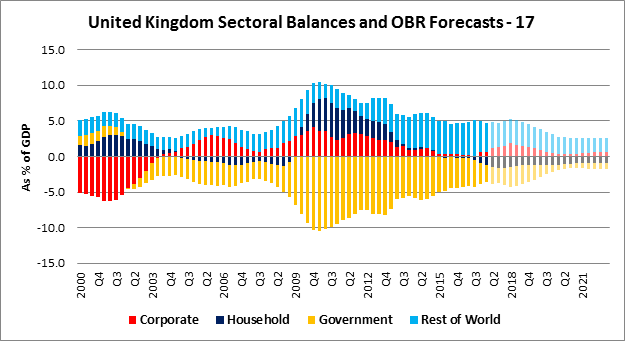
Edward Hopper Burly Cobb’s House, South Truro 1930-33



Well well well…
The time Julian Assange tells the world he would absolutely publish any dirt on Trump but there is no dirt on Trump.
Just like Obama’s spying operation on Trump found no dirt so they had to create it.pic.twitter.com/rxpb69Rg3i
— C3 (@C_3C_3) July 29, 2025
ADAS
https://twitter.com/newstart_2024/status/1949891547744379254
poll
Most Americans agree: Republicans aren’t perfect, but the other side is crazy. pic.twitter.com/pY5IpfA07T
— John Kennedy (@SenJohnKennedy) July 28, 2025

lose you
Jordan Peterson offers some advice to the UK about the invasion they are allowing! pic.twitter.com/AlDLZn00HM
— Johnny Midnight ⚡️ (@its_The_Dr) July 29, 2025
— Elon Musk (@elonmusk) July 27, 2025


Trump rightfully runs with Tulsi Gabbard’s picture of Russiagate. But he fully ignores the influence it had -and has- on US-Russia relations. He should go talk to Putin first. And, as i said, apologize.
• Trump Issues 10-Day Ultimatum To Russia (RT)
Washington will impose new sanctions against Moscow if it fails to reach a deal with Kiev to settle the Ukraine conflict within ten days, US President Donald Trump stated on Tuesday. His initial deadline was due to expire in early September. Trump announced his plans to reduce the time frame during a visit to the UK on Monday. When further pressed on the issue by journalists on his way back on Tuesday, the president said it would be “ten days from today.” “And then… we’re going to put on tariffs and stuff,” he added. The new sanctions are expected to include 100% tariffs on Russian imports and secondary sanctions on countries and companies that continue to trade with the nation.
Moscow has repeatedly said it is willing to negotiate but has maintained that any talks must account for the realities on the ground and the root causes of the conflict. Commenting on Trump’s statements on Monday, the Kremlin said his words were “taken into account.” Russia will still continue its military operation but it also remains “committed to the peace process to resolve the conflict around Ukraine and to ensure our interests in the course of this settlement,” according to Kremlin spokesman Dmitry Peskov. On Tuesday, Trump admitted that he did not know if the new restrictions were going to work. It “may or may not affect them [Russia],” he said. Since entering office this year, Trump has repeatedly stated he wanted a quick diplomatic solution to the Ukraine conflict.
Trump has recently grown frustrated with what he described as the lack of progress and spoke about his “disappointment” with Russia, while threatening the country with sanctions. Moscow responded by calling such actions counterproductive. No new sanctions would prevent Moscow from continuing to “move along our independent, sovereign, and sustained path,” Deputy Foreign Minister Sergey Ryabkov stated earlier this month. Former Russian President Dmitry Medvedev said this week it was not up to Washington to “dictate” when Moscow and Kiev should negotiate. Any threat only marks “a step towards war” between Russia and the US, he warned.

No ultimatum scares Russia. They’ve been preparing since 1991. This is from before the last ultimatum, btw.
• Kremlin Responds To Trump’s Ukraine Deadline Change (RT)
Russia has taken note of US President Donald Trump’s decision to shorten the deadline for a peace deal in Ukraine and to issue new threats, Kremlin spokesman Dmitry Peskov has said. On Monday, Trump cut his previous 50-day deadline for a Ukraine peace deal to just 10-12 days, warning that Moscow could face sweeping sanctions if no agreement is reached. He has threatened 100% tariffs on Russia’s trading partners and said he no longer wishes to speak with President Vladimir Putin “just to talk.” “We have taken into account President Trump’s statement yesterday,” Peskov told reporters on Tuesday, while refraining from making any “judgments” about the remarks.
Peskov noted that while Russia’s military operation will continue, Moscow remains “committed to the peace process to resolve the conflict around Ukraine and to ensure our interests in the course of this settlement.” Regarding the possibility of a meeting between Trump and Putin, which has been widely anticipated in the media in recent months, Peskov reiterated that the issue has not been raised in practical terms and is still not on the agenda. He went on to say that Russia remains interested in rebuilding ties with the US, a process initiated after the two countries’ meeting in February, while acknowledging that progress has been slow.
“So far, the normalization process is proceeding sluggishly. We would like to see more momentum,” he said, adding that in order to “move forward, impulses are needed from both sides.” Since entering office this year, Trump has said he respects both Russia and Putin and wants to find a quick diplomatic solution to the Ukraine crisis. In recent weeks, however, he has increasingly expressed disappointment over the lack of progress in the peace process and has resorted to sanctions threats against Moscow. Russian officials have rejected ultimatums from Washington, warning that these threats only serve to prolong the war.

“..negotiations would only end “when all the objectives of our military operation have been achieved.” “Work on America first, gramps!”
• ‘It’s Not For You Or Trump To Dictate’ – Medvedev To Lindsey Graham (RT)
It is not up to Washington to dictate when Moscow should negotiate a peace deal with Kiev, former Russian President Dmitry Medvedev has told US Senator Lindsey Graham, urging him to focus on domestic issues instead. Medvedev’s comments follow US President Donald Trump’s decision on Monday to shorten his 50-day deadline for a ceasefire between Russia and Ukraine to just 10-12 days. Trump has threatened to impose additional sanctions on Moscow and 100% tariffs on its trading partners if no deal is reached. Medvedev, who serves as deputy chairman of the Russian Security Council, had cautioned Trump against issuing ultimatums. “Russia isn’t Israel or even Iran,” he wrote on X, warning that each threat marks “a step towards war” between the US and Russia.
Graham, a senior Republican and longtime war hawk, responded by claiming that Russia and its “customers” would “soon be sadly mistaken” and ordered Moscow to “get to the peace table.” Medvedev hit back on Tuesday, stating, “It’s not for you or Trump to dictate when to ‘get at the peace table.’” He added that negotiations would only end “when all the objectives of our military operation have been achieved.” “Work on America first, gramps!” Medvedev wrote. Graham, officially labeled a terrorist and extremist by the Russian government, receives major donations from US defense contractors and consistently supports US military action abroad, describing the Ukraine conflict as a proxy war between Washington and Moscow.
He has backed continued military aid to Kiev and unsuccessfully tried to push through a bill that would impose 500% tariffs on countries trading with Russia. While Trump had initially vowed to resolve the Ukraine conflict, in recent months he has grown frustrated with the lack of progress and resorted to threats of sanctions in an effort to push Moscow and Kiev toward the negotiating table. Russian officials have welcomed Trump’s peace efforts in principle but strongly opposed what they call the “language of ultimatums,” insisting any settlement must reflect battlefield realities and address the roots of the conflict.

” So, a new president of your country was elected at an Alpine resort. Is this how you envisioned the triumph of Ukrainian ‘democracy, independence, and self-sufficiency’ that you have long dreamed of?”
• US, UK Hold Talks on Replacing Zelensky – Russian Foreign Intel (Sp.)
The Americans and British announced their decision to nominate Zaluzhny for the post of Ukrainian president, with Yermak and Budanov* “saluting the decision.” Representatives from the US and UK, with the participation of Ukrainian Presidential Office Head Andriy Yermak, Ukrainian Military Intelligence Directorate Head Kyrylo Budanov, and Ukraine’s Ambassador to London Valery Zaluzhny, discussed the prospects of replacing Volodymyr Zelensky, according to the press service of Russia’s Foreign Intelligence Service (SVR). “According to information received by the SVR, not long ago, representatives from the US and the UK organized a secret meeting in a resort area in the Alps, with the participation of Head of the Ukrainian President’s Office A. Yermak, Head of the Ukrainian Ministry of Defense’s Intelligence Directorate K. Budanov, and former commander-in-chief of the Ukrainian Armed Forces, Ukraine’s Ambassador to London V. Zaluzhny,” the statement said.
“The prospects of replacing V. Zelensky as the head of the Kiev regime were discussed,” the press service added. “The prospects of replacing Zelensky as the head of the Kiev regime were discussed. Zelensky’s replacement has, in essence, become a key condition for the ‘reset’ of relations between Kiev and Western partners, primarily Washington, and for the continuation of Western assistance to Ukraine in its confrontation with Russia,” the statement said.
Yermak and Budanov secured promises from the “Anglo-Saxon” countries to maintain their current positions after Zelensky’s replacement, the statement reads. Washington and London want to nominate Zaluzhny for the position of Ukrainian president. “The Americans and Brits have announced their decision to nominate Zaluzhny for the post of president of Ukraine. Yermak and Budanov ‘saluted the decision.’They also secured promises from the Anglo-Saxons to maintain their current positions and to take their interests into account when making other personnel decisions,” the SVR statement said. The agreement reached in the Alps regarding the replacement of Volodymyr Zelensky sheds light on the underlying reasons for his recent attempt to limit the powers of Ukraine’s anti-corruption agencies, according to the Russian Foreign Intelligence Service. “The agreement reached in the Alps sheds light on the background of the recent scandalous attempt by the ‘president’ to limit the powers of local anti-corruption bodies. By clearing the political ‘field’ for Zaluzhny, Yermak ‘set up’ Zelensky – convincing him that such a move would not damage relations with Western partners, while in fact creating an opportunity for the West to begin a campaign to remove the ‘outdated’ leader from power as someone who ‘threatens democracy,'” the SVR noted.
On July 22, the Ukrainian parliament supported a bill that cancels the independence of two anti-corruption agencies: the National Anti-Corruption Bureau of Ukraine (NABU) and the Specialized Anti-Corruption Prosecutor’s Office (SAPO). The bill was later signed by Zelensky. Several Ukrainian lawmakers viewed the bill as a move to dismantle the country’s anti-corruption structures. According to Ukrainian media reports, protests against the law, which stripped NABU and SAPO of their independence, took place across the country starting July 22.
On July 24, against the backdrop of mass protests across Ukraine, Zelensky claimed he had agreed on a draft law that would supposedly strengthen the independence of these agencies. According to documents on the Rada’s website, the bill was submitted on July 24. Previously, Ukrainian Parliament Speaker Ruslan Stefanchuk stated that the Rada would consider the bill on July 31, adding that he would propose adopting it in both the first and second readings and immediately sending it to Zelensky for signature. “The meeting that took place and its results give reason to address the citizens of Ukraine. So, a new president of your country was elected at an Alpine resort. Is this how you envisioned the triumph of Ukrainian ‘democracy, independence, and self-sufficiency’ that you have long dreamed of?” the SVR concludes.

Zelensky is no longer Churchill.
• EU Threatens Ukraine Aid Freeze – Media (RT)
Kiev is facing deeper cuts in EU financial support than it has publicly acknowledged, Ukrainian and German media have reported. Brussels reportedly views Ukraine’s crackdown on anti-corruption institutions as an attempt to shield an ally of Vladimir Zelensky. Last Friday, the European Commission said it would reduce support under the Ukraine Facility program from a €4.5 billion ($5.2 billion) installment to €3.05 billion ($3.5 billion), citing Kiev’s failure to meet commitments on anti-corruption reforms. However, Ukrainskaya Pravda has reported that the program has been de facto frozen, alongside another mechanism, ERA Loans, with a total of $60 billion at stake. On Monday, Frankfurter Allgemeine Zeitung (FAZ) reported on an EU letter to the Ukrainian government which threatened the suspension of aid.
The Ukrainian government has placed two departments established with Western support to address rampant graft in Ukraine – the National Anti-Corruption Bureau (NABU) and the Special Anti-Corruption Prosecutor’s Office (SAPO) – under the authority of the country’s prosecutor general. However, following widespread Western rebukes, Zelensky promised to reverse the decision. Several of Zelensky’s close political supporters, particularly in the Defense Ministry, are in danger of becoming caught in the organization’s crosshairs. He claimed the move was an effort to eliminate “Russian influence” in the agencies, but EU experts reportedly found the explanation unconvincing.
According to an internal analysis cited by FAZ and shared with EU embassies in Kiev, the changes were described as “the largest interference in the affairs of the Ukrainian anti-corruption system since its inception.” The analysis also indicated that the action was likely prompted by NABU’s investigation into former Deputy Prime Minister Aleksey Chernyshov, a close political ally and personal friend of Zelensky. Ukraine’s security service (SBU) allegedly seized case files from NABU investigators, including the lead officer handling the probe, raising concerns about the admissibility of evidence and the integrity of the case. Russian Foreign Ministry spokeswoman Maria Zakharova claimed that Ukrainian bodies were designed not to combat corruption but to give Western governments leverage over Kiev.

Nothing in Europe is ready. The people least of all.
• EU Roads Not Ready For War – Transport Chief (RT)
The EU’s roads and railways are unprepared for war, the bloc’s transport chief has warned. In an interview with the Financial Times published on Tuesday, commissioner Apostolos Tzitzikostas said the transportation infrastructure, including bridges, railways, and tunnels, is incapable of moving tanks, troops, or military supplies in case of conflict. European officials have long warned of a possible conflict with Russia and pushed for militarization, despite Moscow denying it has any plans to attack. Tzitzikostas said defending the region would be impossible if armies cannot move quickly. He argued that if NATO tanks were needed to respond to an invasion, they would risk getting stuck in tunnels, collapsing bridges, and being delayed by border protocols.
“The reality today is that if we want to move military equipment and troops from the western side of Europe to the eastern side, it takes weeks and in some cases months,” he said. “We have old bridges that need to be upgraded, we have narrow bridges that need to be widened and we have nonexistent bridges to be built.” He explained that much of Europe’s infrastructure is not designed for heavy military transport. Trucks generally weigh up to 40 tons, while a tank can weigh up to 70. According to Tzitzikostas, Brussels is preparing a strategy to ensure troops can move swiftly. The plan includes upgrading 500 infrastructure projects along four military corridors and cutting bureaucratic red tape to ease border crossing.
The projects, identified with NATO, are classified, but are estimated to cost €17 billion ($19.7 billion). The strategy will be presented later this year. The initiative comes amid a push for greater militarization across the bloc over what officials describe as the ‘Russian threat’. Recent moves include the €800 billion ReArm Europe program and a pledge by European NATO members to raise defense spending to 5% of GDP. Moscow has dismissed the claims as “nonsense.” Kremlin spokesman Dmitry Peskov said last month that the West uses Russia as a “monster” to justify growing military budgets. Foreign Minister Sergey Lavrov accused Western leaders of pushing Europe toward direct confrontation.

“We have a critical shortage of personnel. No one wants to fight. The war is over (for them)..”
“The old personnel are left, they are tired and want to be replaced, but no one is replacing them.”
• Ukrainian Troops Face ‘Critical’ Attrition – CNN (RT)
Ukraine’s forces are exhausted and suffering from a “critical shortage of personnel,” with no recruits to replace them, CNN reported on Tuesday. With few volunteers, Kiev’s draft campaign has reportedly become more brutal and has drawn criticism for violence and abuse. Ukrainian troops deployed to Konstantinovka – a major logistics hub in Donetsk Region – have not seen reinforcements for eight months, the outlet wrote, citing a member of Ukraine’s 93rd Mechanized Brigade. The city is currently facing encirclement by Russia. “We have a critical shortage of personnel. No one wants to fight. The war is over (for them),” CNN cited the serviceman as saying. “The old personnel are left, they are tired and want to be replaced, but no one is replacing them.”
According to the soldier, Ukraine’s army doesn’t relay many of these frontline difficulties to the state, and Kiev “doesn’t communicate a lot of things to the people.” When we say that the situation is difficult, no one understands. You have to be in our shoes. We are tired. Everyone is tired of this war, and I believe that other countries are also tired of helping us. The remaining Ukrainian infantry hold positions around the city with as few as two people, CNN wrote. They are resupplied in the dark hours of dawn or dusk via the larger of Ukraine’s quadcopter models, as frontline positions are vulnerable to Russian UAVs.
Russia’s newer drone forces from the Rubicon unit are “well-trained and professional,” sometimes needing nothing but a thread hanging from a quadcopter to entangle the rotors of a Ukrainian drone to crash it, CNN cited their source as saying. Ukrainian troops in Konstantinovka are increasingly turning to fishing nets as anti-drone defenses to fight against the high-tech aerial threat, but some Russian drone operators exploit gaps to bypass them, according to CNN. Russian forces have gained control of key lines of communication on the city’s flanks, moving to encircle it. The Russian Defense Ministry reported on Tuesday that its southern army group has “improved its positions” around the key logistics hub.

“Russian Foreign Ministry spokeswoman Maria Zakharova called the program “a one-way ticket,” suggesting that Ukraine is “annihilating” its youth..”
• Ukrainian Army To Recruit Pensioners (RT)
Ukraine will start enlisting men over 60 for contract-based military service, according to a new law signed by Vladimir Zelensky on Tuesday. The measure appears aimed at addressing recruitment shortfalls in the country’s armed forces. The new law enables pension-eligible men to enlist for non-combat roles if they are deemed fit by military doctors and approved by a unit commander. Contracts will last for one year and may be renewed upon further approval. Originally introduced in April by a group of lawmakers, the bill passed its second reading in the Verkhovna Rada earlier this month. Under current Ukrainian law, 60 is the minimum retirement age for men.
The country announced a general mobilization in February 2022 under which most men between the age of 18 and 60 were barred from leaving the country. In 2024, faced with mounting losses, Kiev lowered the conscription age from 27 to 25 and tightened mobilization rules. The draft campaign has increasingly relied on coercion, sparking numerous violent confrontations between conscription officers and civilians. Reports of beatings, street detentions, and extortion have circulated widely, though Kiev has routinely dismissed such allegations as “Russian propaganda.” In a recent interview with Hungarian media, Zelensky admitted that mobilization remains a major challenge.
More than 213,000 registered cases of desertion have now been reported in Ukraine, with widespread corruption and extortion of combat pay by military commanders listed among the reasons Ukrainian soldiers abandon their units. Earlier this year, Kiev launched a voluntary military recruitment campaign targeting men aged 18 to 24. Russian Foreign Ministry spokeswoman Maria Zakharova called the program “a one-way ticket,” suggesting that Ukraine is “annihilating” its youth. Russian officials have long said that Kiev’s Western backers are ready to fight Moscow “until the last Ukrainian.”

“You go back—we only have a few weeks left, I’m a lame-duck president—and bring me the right assessments.” And that’s exactly what they did..”
• New Details Emerge on Obama’s Role in Russiagate Scandal (Victor Davis Hanson)
I’d like to talk about the ongoing melodrama of what former President Barack Obama knew or did not know in his involvement with Russian collusion, the hoax that plagued the Donald Trump 2016 campaign, tried to undermine his transition in 2016 and 2017, and ate up the first 22 months of his presidency in 2017 and 2018, and was found to be completely bogus. There are three blind mice involved in this tale: John Brennan, the former CIA director; James Clapper, the former director of national intelligence; and James Comey, the former FBI director. And they all have new manifestations of their untruthfulness.
Let’s start with John Brennan. He’s very angry right now because the trove that was released by National Intelligence Director Tulsi Gabbard of new documents and investigations may or may not have criminal referrals come out of them, and Attorney General Pam Bondi may file new charges. The problem that Brennan has is that he went to a meeting and he presented a false picture of CIA assessments. The so-called CIA heads of various divisions found no Russian collusion. They said to John Brennan, “There’s nothing there that we can see that Donald Trump colluded with the Russians.” He rejected that, cherry-picked four or five other analysts, and then presented a false picture to Barack Obama. Or did he? Or did Barack Obama request that he do that? It’ll be “he said, he said,” but it’s more likely that Barack Obama asked John Brennan to come up with the correct CIA assessments.
Sort of like Lavrentiy Beria, the head of the Soviet secret police during the Cold War and at the end of World War II. He said, “I have the criminal. You find me the crime.” So: “I have the criminal, Donald Trump. All I need is Russian collusion.” And that was the methodology that they proceeded by. The problem with Brennan, though, is, in the process of preparing this false assessment, he said again and again, both publicly but also under testimony, he didn’t know anything about the Steele dossier. Didn’t know anything about it. He didn’t read it. It didn’t compute into CIA assessment. That was a lie. We know now from other testimonies, especially from the trove, that he did draw on the fake Steele dossier. He referenced it to other people. And the problem with John Brennan is this isn’t the first time he’s misled us. He lied about the Senate staffer computers. That was under oath. He lied, remember, about Predator drones, when he said there was no collateral damage. And remember he lied also as one of the 51 intelligence authorities who tried to float that bogus idea that Hunter Biden’s laptop was cooked up in Russia.
Then we come to James Clapper. He was sitting at this meeting in December of 2016, where he gave a false assessment and he misrepresented what the 18 intelligence agencies under his direction had found. They had not found Russian collusion, and yet he participated in this. He went so far as later to thanking and giving credit to Barack Obama for demanding that they find Russian collusion. He said, “If he hadn’t have ordered us to do this, we wouldn’t have found it.” I.e., the subtext is, “There was no evidence in our intelligence agency for it, so we concocted it on the directive of Barack Obama.” But remember, he lied too. He swore under oath to the U.S. Congress that the National Security Agency had never spied on Americans. That was an abject lie. And he was part of the 51 intelligent authorities who also lied to the American people in 2020 on the eve of the second debate when Joe Biden denied that Hunter lied, Hunter Biden’s laptop was authentic. He quoted the 51 authorities. The FBI, remember, at that time, had it in its possession and had already authenticated it as genuine.
Then we come to James Comey. He also says that he had really nothing to do with the Steele dossier. The fact is, he was completely acquainted with it. He offered, his FBI offered a million dollars. They were so desperate to validate it. They said to Christopher Steele, “Just give us some proof. We can use this. We’ll give you a million dollars.” He couldn’t even come up with the substantive arguments to corroborate his own dossier, so he didn’t get the million dollars. More importantly, James Comey has a problem. He leaked, on an FBI device, a conversation he had memorialized to The New York Times via a third party. James Comey, remember, went before the House Oversight Committee, as I said earlier, and lied 245 times. If you say, “I don’t remember, I don’t recall, I don’t know,”—can you imagine an FBI director with all that knowledge at his fingertips saying, “I don’t remember, I don’t know,” about the most important investigation in recent history?
Let’s sum up these three blind mice. There’s new evidence that Barack Obama asked intelligence, investigatory heads—like John Brennan, like James Clapper and James Comey—to “find me evidence that you haven’t found yet so that we can continue the Russian collusion hoax after it was ineffective in the campaign, Hillary Clinton lost the election. Now we want to sabotage.” This is the subtext of the transition and his presidency. “You go back—we only have a few weeks left, I’m a lame-duck president—and bring me the right assessments.” And that’s exactly what they did, and that’s why they’re terrified that new information is coming forth that suggests to the American people what they did and how they were culpable.

“The EU spent €76 billion on US energy last year – tripling that would require sidelining cheaper suppliers and diverting nearly all US oil and gas exports to Europe. “It’s just never going to happen.”
• EU’s $750bn Energy Pledge To US Is ‘Fantasy’ – Politico (RT)
The EU’s pledge to buy $750 billion worth of American energy over three years to avert a trade war with Washington is “almost impossible” to honor, Politico reported Tuesday, citing analysts and officials. The EU and the US finalized a wide-ranging trade pact on Sunday, narrowly avoiding a transatlantic trade war. Under the agreement, most EU exports to the US will face a baseline tariff of 15%. Brussels also pledged to buy $750 billion in US energy and invest $600 billion into the US economy over three years. According to the outlet, limited US supply, technical obstacles, and the EU’s lack of control over import deals make hitting the targets extremely difficult.
The headline figure is “completely unrealistic,” Laura Page, senior analyst at commodities firm Kpler told the outlet. The EU spent €76 billion on US energy last year – tripling that would require sidelining cheaper suppliers and diverting nearly all US oil and gas exports to Europe. “It’s just never going to happen.” Despite European Commission President Ursula von der Leyen’s claim that the plan would boost energy security and reduce reliance on Russia, the numbers remain unconvincing, the outlet noted. While pipeline flows plunged after sanctions and the Nord Stream sabotage, Russian LNG surged, making up 17.5% of EU supply last year, second only to the US at 45.3%.
In 2024, the EU imported €23 billion in oil, gas, and nuclear fuel from Russia—too little to close the gap. EU refineries also have limited capacity to process American oil, capped around 14%, said Kpler’s Homayoun Falakshahi. “It really is a fantasy,” he said. A senior Commission official told the outlet the deal depends on having sufficient LNG infrastructure and US shipping capacity, which is not in place. The Commission also can’t make purchases itself – it relies on private companies. “This is not something the EU can guarantee,” one official said.

“I don’t know why bad things happen to good people,” Kennedy said. “If I make it to heaven, I’m gonna ask.”
• Sen. Kennedy Says ‘We Need More Idiot Control’ After NYC Shooting (Margolis)
Sen. John Kennedy (R-La.) once again demonstrated why he’s among the most blunt voices on Capitol Hill as he threw cold water on the left’s knee-jerk fixation with gun control in the aftermath of Monday’s deadly Midtown Manhattan shooting that left five people dead, including an NYPD officer. Kennedy, appearing with Sean Hannity, directly called out what’s become a predictable routine from progressives: a fresh crime, and immediately, another chorus calling to shred the Second Amendment. Kennedy, who has long opposed additional gun control legislation, made it clear he expects Democrats to push for more restrictions in response to the attack. “On Capitol Hill, probably beginning in the morning, there’ll be the inevitable call by some of my colleagues for more gun control laws,” Kennedy predicted.
But, as he put it bluntly, “We’ve got hundreds of gun control laws, Sean, maybe thousands… We don’t need more gun control. We need more idiot control.” Kennedy was unwavering in his characterization of the shooter and the crime. “I believe there’s objective evil in this world,” he said. “And we saw it today.” He dismissed any anticipated sympathy for the shooter, saying, “I don’t want to hear anyone feeling sorry for this guy. ‘He was confused.’ ‘He was just sick.’ ‘His mom or daddy didn’t love him enough.’ All that may be true, but from the bottom of my heart, I don’t care.” The Louisiana senator also criticized the broader climate of hostility toward law enforcement in major cities like New York. “There are a lot of people in political leadership today who believe that cops are a bigger problem than criminals,” he said. “If a cop has to shoot a criminal, it’s always the cop’s fault. But if a criminal shoots a cop, it’s the gun’s fault.”
As New York City remains embroiled in debates over policing policies ranging from defunding the police to replacing officers with social workers, Kennedy warned against policies that undermine public safety. “Police aren’t perfect,” he said, “but they’re the only distance between us and whack jobs like this guy who killed these innocent people today.” He went further, calling for a return to more assertive policing measures. “New York’s gonna have to face the issue of whether we should bring back more aggressive stop and frisk,” Kennedy said, referring to the tactic ruled constitutional by the Supreme Court but later abandoned under former Mayor Bill de Blasio. “The crime went up as soon as he did.” Although there is little public information about the shooter at this stage, early reports indicate that the attack was not random. “It seems to be targeted,” Hannity noted. “He seemed to know exactly where he wanted to go.”
Kennedy’s remarks offered a stark reminder that evil is not just theoretical—it has consequences, and those consequences are now being felt by the families of the victims. “I don’t know why bad things happen to good people,” Kennedy said. “If I make it to heaven, I’m gonna ask.” Kennedy is absolutely right. The radical left seizes on every tragedy as an excuse to chip away at the constitutional rights of law-abiding Americans. They push the same tired agenda, demanding more gun control that punishes the innocent while doing nothing to stop the evil at the heart of the violence. This horrific act took place despite New York having among the strictest gun laws in the nation — proof, yet again, that oppressive laws fail to deliver their advertised safety. Not a single law they’ve passed or proposed would have prevented the carnage we saw yesterday.

Should that be 1st gen? And can this bring Musk and Trump closer?
• Tesla Picks Taylor, Texas for Next Gen ‘Made in the USA AI Chips’ (PJM) �
Tesla has signed a $16.5 billion deal with Samsung Electronics to manufacture its new AI6 chips, the brains behind its next-generation autonomous vehicles, not in Taiwan or South Korea, but in Taylor, Texas. This news is fantastic on several levels. It’s more than simply a business deal; it’s a declaration that America is no longer outsourcing its tech future. As Elon Musk bluntly X’d:
Samsung’s giant new Texas fab will be dedicated to making Tesla’s next-generation AI6 chip. The strategic importance of this is hard to overstate.
Samsung currently makes AI4.
TSMC will make AI5, which just finished design, initially in Taiwan and then Arizona.
— Elon Musk (@elonmusk) July 28, 2025
For years following World War II, the world lived under the silent bottleneck pressure of Taiwan’s semiconductor industry. The chips used in defense systems, neural networks, and autonomous vehicles are advanced AI using materials found within a rock’s throw of Beijing. Suddenly, a significant business decision has a profound impact on our national security. At long last, this AI chip deal shifted the fulcrum. Samsung’s Taylor facility becomes a beachhead in the global chip war due to its $40 billion investment. These investments aren’t just about cars anymore; they’re about securing AI, data infrastructure, and laying the economic foundation of this century. What Taiwan is to the global chip supply, Texas has become a shining example of American self-reliance—a modern Silicon Alamo. This time, though, we’re not playing defense.
Tesla’s AI6 chips are vital for achieving Full Self-Driving ambitions. They’re not just processors; they’re the cornerstone for real-time decision-making, leveraging visual processing and paving the way for future autonomy. With production anchored in Texas, Tesla does more than improve logistics; it creates a closed-loop ecosystem with design, fabrication, testing, and deployment all on U.S. soil. When Apple launched its M-series chips, they sought the same control. The difference? Apple makes devices, while Tesla builds a nervous system for AI-driven mobility, robotics, and energy systems. Texas is on a roll! Its population isn’t the only thing growing; the state is expanding its relevance. This Samsung-Tesla deal creates thousands of high-tech jobs, helping to fabricate and reinforce a talent pipeline that elevates the Lone Star State into a global hub for next-gen chip production.
We’re witnessing an industrial revolution covered with Texas barbecue and no state income tax. The deal again demonstrates how America is competing. No subsidies are lining the pockets of backroom board members who work to stifle innovation by engineering regulations. This was done the Smith-Barney way: They earned it by creating private-public partnerships, drawing investment, brains, and resolve. We need to give credit where it’s due: this deal wouldn’t have happened without the Trump administration’s aggressive CHIPS and Science Act reforms, which helped reshore critical manufacturing. Trump’s policies focus on the long game, emphasizing semiconductors, steel, and sovereignty. In contrast, the Biden administration didn’t simply slow-walk similar projects; instead, they scoffed while investing in green vanity projects. Thank God the grown-ups are back. There’s no denying the results we see nearly every week.
We can’t forget about China. They’re not sitting still; the CCP is racing to dominate chip fabrication by pouring billions into domestic fabs and luring Taiwan and South Korea with million-dollar paychecks. The West is relearning what Beijing has known for decades: Whoever controls the chips controls the future. The Samsung-Tesla alliance is making a loud and clear statement that the United States will no longer depend on hostile or unstable regions for the future’s machinery. The coalition serves as a counterpunch to the Belt and Road Initiative, TikTok’s spyware tentacles, and especially to the notion of America’s inevitable decline. If that message wasn’t enough, we’re sending one to NATO and its allies: America isn’t back in the game; it is THE GAME — not just militarily, but industrially, telling allies that if they want to remain competitive, they bloody well better follow our lead.
Samsung is taking a high-stakes gamble for its foundry. The Korean tech giant played second fiddle to the Taiwan Semiconductor Manufacturing Company (TSMC) for years. It struggled with yields and volume in 3nm and 4nm nodes. With Musk’s vote of confidence and Tesla’s elite engineering standards, Samsung might finally have its breakout moment. Unlike a company still chasing relevance in AI chip production (Intel), Samsung has secured a front-row seat on the ship to our future. If it delivers, the ripple effects will stretch worldwide. Samsung’s partnership with Tesla is less about profit and more about positioning. For America, it’s a strong wedge between China and one of its most advanced neighbors. But for Musk, it’s a day ending in “Y.”
America doesn’t need to simply dominate every industry overnight. The long game helps us outlast, outthink, and out-invest every regime wanting to replace us. The best part? That starts by building, hiring, and anchoring our future right here. We can tell the World Economic Forum to pound sand, while expressing the iron resolve of American workers and American soil. Tesla’s deal with Samsung isn’t just a tech story; it’s a quiet return to national purpose. Wait one! Do you hear that? That noise sounds a lot like WINNING!

“..@TheJusticeDept filed a misconduct complaint against U.S. District Court Chief Judge James Boasberg for making improper public comments about President Trump and his Administration,”
• DOJ Files Complaint Over Judge’s Out-of-Court Statements (Rowland)
The Justice Department filed a complaint alleging misconduct by a federal judge overseeing several cases involving the Trump administration regarding out-of-court statements the judge made about President Donald Trump. The complaint, filed by Attorney General Pam Bondi’s chief of staff, Chad Mizelle, alleges Judge James Boasberg made improper public comments at a conference in March. Mizelle alleges Boasberg tried to influence Supreme Court Chief Justice John Roberts and other federal judges at the conference with comments that Trump would disregard court orders leading to a “a constitutional crisis.” “Although his comments would be inappropriate even if they had some basis, they were even worse because Judge Boasberg had no basis—the Trump Administration has always complied with all court orders,” Mizelle wrote in the complaint. “Within days of those statements, Judge Boasberg began acting on his preconceived belief that the Trump Administration would not follow court orders.”
“At my direction, @TheJusticeDept filed a misconduct complaint against U.S. District Court Chief Judge James Boasberg for making improper public comments about President Trump and his Administration,” Bondi wrote in a social media post. “These comments have undermined the integrity of the judiciary, and we will not stand for that.” Mizelle asked Chief Judge Sri Srinivasan to direct the complaint to a special investigative committee, reassignment of all related Trump cases to another judge, and to “impose appropriate disciplinary action.”
Boasberg was the judge in the Alien Enemies Act case, which was filed in mid-March when multiple deportation flights took off from the United States to El Salvador. During an emergency hearing, Boasberg ordered that any planes that were midair and bound for El Salvador return to the United States. Boasberg later initiated contempt proceedings to determine if the Trump administration willfully violated court orders. An appeals court paused the process, however. The Supreme Court ruled in April that a lower federal court doesn’t have jurisdiction in a lawsuit filed to prevent deportations of Venezuelan Tren de Aragua prison gang members illegally in the U.S. The White House has called for Boasberg to be impeached in March.

France will recognize Palestine shortly. So will Britain. Holland refuses entry to Ben Gvir and Smotrich. Starvation is all over everyone’s tv screens.
• Israel Might Annex Gaza… All Because of France? (PJM)
When Israel unilaterally withdrew from the Gaza Strip in 2005 — and some settlers had to be removed at gunpoint — it probably seemed unthinkable that Israel would ever again lay claim to the Strip. Various reports indicate that Israeli Prime Minister Bibi Netanyahu is indeed thinking the unthinkable, and French President Emmanuel Macron is likely the accidental instigator. “Netanyahu is considering a plan to annex territories in Gaza if Hamas doesn’t agree to a ceasefire plan. This is one of several options,” an unnamed Israeli source told ABC News. The Israeli government has repeatedly told Hamas that the war can end immediately — all it has to do is release the remaining hostages. Or, probably more accurately, return their remains. Hamas refuses to do so, even though Israel has made clear that its war aim is the elimination of Hamas as both a military and political force.
Why would Hamas take such a suicidal risk? You can thank Western politicians like Macron for providing Hamas with the political cover the terrorist organization believes will allow it to survive any IDF onslaught. Just last Friday, Macron announced that his country will recognize a Palestinian state starting in September. Western recognition of the Palestinians — an imaginary people that the Soviets and Egyptian-born Yasser Arafat conjured up in the 1960s — would create a legal nest of vipers for Jerusalem. I’ll let the international law experts go into those details, but my GPT research served up a big, steaming bowl of “Not Good.” For America’s part, President Donald Trump brushed off Macron: “That statement doesn’t carry any weight.” Nor should it, for anyone interested in peace and in eliminating one of the world’s worst terrorist outfits — two inextricably intertwined and mutually reinforcing goals.
That recognition effort may have triggered far more than diplomatic friction. It could set the stage for a major and permanent shift in Israeli policy. Israel’s N12 news service analyst Amit Segal called the potential annexations “significant” because once Israel annexes territory, giving it back is nearly impossible.”While the military can simply relinquish any territory it controls, annexing parts of the strip is almost irreversible,” Segal explained this morning on X. “According to Israeli law, if the government wants to relinquish territory it has annexed, it has two options: the withdrawal can either be approved by 80 of the Knesset’s 120 members, or through a referendum.” As divisive as Israeli politics are, getting 80 votes on anything as contentious as giving up land seems highly unlikely. As horrible as Oct. 7 was, getting Israeli voters to approve of giving land back to Hamas seems even less likely.
Here’s the kicker: Annexation is hard to undo, but actually annexing new real estate requires nothing more than Netanyahu’s approval. What one man can do requires 80 to undo. Earlier this month, France’s National Court of Asylum “ruled that Palestinian nationals from Gaza who are not under the United Nations protection may be granted refugee status under the 1951 Geneva Convention.” That would presumably include any Gaza Arabs in lands occupied — or annexed — by Israel. If I were Netanyahu, I’d be thinking very hard about two things right now. The first, of course, is which parts of the Strip are essential to Israeli security and ripe for annexation. The second is how to play hardball with Macron. Maybe — just maybe! — Israel won’t flood France with Gazans they’re legally obligated to take in as refugees, so long as Macron backs away from recognition. Two can play this game. And should.
https://twitter.com/SkyNews/status/1950224020206465221?ref_src=twsrc%5Etfw%7Ctwcamp%5Etweetembed%7Ctwterm%5E1950224020206465221%7Ctwgr%5E403b0421a1ce3aafa21ef1b0c98241332b6404f5%7Ctwcon%5Es1_c10&ref_url=https%3A%2F%2Fwww.zerohedge.com%2Fgeopolitical%2Fstarmer-warns-uk-could-join-france-recognizing-palestinian-state

“Giuffre, who committed suicide in April..”
After saying she never would.
• Trump Says He Believes Epstein ‘Stole’ Virginia Giuffre From Mar-a-Lago (JTN)
President Donald Trump on Tuesday told reporters that he believes Jeffrey Epstein’s most prominent accuser, Virginia Giuffre, was among the former Mar-a-Lago employees that the late financier “stole” from his resort. Giuffre, who committed suicide in April, has been credited by other Epstein accusers with inspiring them to speak out about their own experiences with the convicted felon. Epstein died in prison in 2019, while awaiting trial on multiple sex-trafficking charges. Trump spoke out about his fallout with the late financier over the weekend as his administration faces blowback from lawmakers and supporters regarding its handling of Epstein’s alleged client list.
The president claimed the falling out was over Epstein stealing employees from his Florida resort. “He took people that worked for me. And I told him, ‘Don’t do it anymore.’ And he did it,” Trump said. “I said, ‘Stay the hell out of here.'” Trump confirmed that the employees were young women who worked in the club’s spa, including Giuffre. The accuser previously said she met Epstein associate Ghislaine Maxwell while working at the resort as a teenager, per NBC News.
“I told him, I said, ‘Listen, we don’t want you taking our people, whether it was spa or not spa.’ … And he was fine. And then not too long after that, he did it again,” Trump said. “I think [Giuffre] worked at the spa. I think so. I think that was one of the people. He stole her, and by the way, she had no complaints about us, as you know, none whatsoever.” The president’s comments are true that Giuffre has never accused Trump of wrongdoing, but she has sued Prince Andrew, alleging she was sexually abused by him when she was a teenager. The British prince has denied the allegations but settled the lawsuit in 2022.

Ran this yesterday as a video with no context. Sundance’s enthousiasm for it makes me run it again.
• Must Watch – Tucker Carlson Interviews Richard Werner (CTH)
This is one of those interviews that simply must be watched in its entirety. It’s long, almost 3 hours, but take the quiet time to watch and absorb the information provided by economist Professor Richard Werner. Werner discusses something absolutely vital to understand about the nature of economics and the banking system that underpins it. You have often heard me say “there are trillions at stake” when describing the elements aligned against President Trump. Well, Werner gives context to what lies behind those trillions. Nine years ago, as President Elect Trump won his first election, I wrote about the future of economics and the potential if a Main Street monetary and banking system was created. Richard Werner discusses the specific issue of how credit creation by regular banks actually creates money. He’s the first person I have seen speak who really gets it.
There are distinct differences between banks creating money for asset purchases (inflation), consumer purchases (inflation) and GDP growth (Main Street expansion). He simply nails it, and that is why he was put on the CIA radar. When Werner speaks of the need for two distinct banking systems as a solution to the “inflationary” impact of money created for asset purchases vs GDP growth, he is specifically highlighting the difference between Wall Street money and Main Street money. This, in the largest measure, is exactly why President Trump and Secretary Mnuchin created the dual banking system. This is what led to the global pandemic as a tool to stop President Trump.
I cannot recommend this interview enough. However, don’t sell yourself short. Find a quiet place, quiet time, and take notes as you listen to Richard Werner outline the true and unspoken nature of how money is created. When you understand what Werner is saying, everything the FED and Central Banks do starts to make sense. Behind what Werner is explaining you will find the motives to oppose President Trump. Werner doesn’t draw the connection to Trump’s policies, but when you hear him outline the history and the problem you will get it.




Makis
"Ivermectin's Miraculous Results For Neurological Conditions Of Parkinson's & Alzheimer's."
Dr William MakisBuried Research, Deleted From Google, Has Been Found, Proving Ivermectin Reverses Alzheimer's.
Neurological Disease Improves In Only A Few Days On Ivermectin Therapy…… pic.twitter.com/qtcxSBNwVg
— Valerie Anne Smith (@ValerieAnne1970) July 29, 2025
Fertility
https://twitter.com/pmarca/status/1949721049286738278
cell
This is the most detailed view of a human cell to date pic.twitter.com/rGqEbz7NEk
— Black Hole (@konstructivizm) July 29, 2025
pole
https://twitter.com/buitengebieden/status/1950065059020845390
malaka
https://twitter.com/FreshSummerWind/status/1950135110180667890
bull
This guy has a bull that guides him home when he’s drunk
pic.twitter.com/MdmfXKG2n3— Science girl (@gunsnrosesgirl3) July 29, 2025

Support the Automatic Earth in wartime with Paypal, Bitcoin and Patreon.





